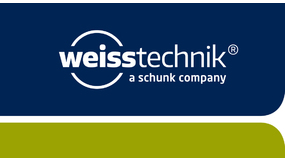Opportunities for growth explored by industry experts at the MAA Conference 2022
With industry growth on the horizon, over 100 people from across the aerospace industry gathered at the 2022 MAA Conference to look to the future. The agenda was packed with insights from leading experts who shared their perspectives on how aerospace is evolving and key areas for growth. It was great to get together -- after a three-year break as a result of the Covid-19 pandemic -- to discuss important market trends and the business opportunities that are emerging.
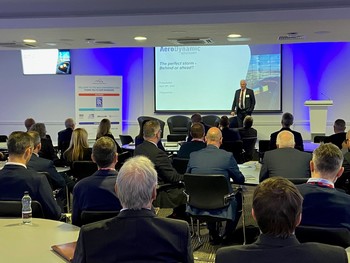
The future of aerospace
Keynote speaker, Klaus Mueller, Senior Advisor at AeroDynamic Advisory, one of the world’s top aerospace consultancies, opened the conference with an in-depth analysis of the industry, covering the impacts of geopolitical tensions, the future role of developing markets in aviation and the drive toward net zero emissions.
Klaus first addressed current issues impacting the aerospace ecosystem and its supply chain from a short-term perspective, focusing on the impact of the Russian invasion of Ukraine. He reviewed issues like increasing cost pressures resulting from global sanctions (fuel, labour, material supply and logistics) and renewed challenges to a globalised production system – key elements from a short-term perspective.
Looking to the long-term future of aerospace, Klaus sketched out the trends to follow as the industry emerges from this global disruption, looking at anticipated developments related to de-carbonisation and the shift towards ‘green energy’. In Klaus’ view, aerospace faces existential issues from a sustainability perspective. He remains to be convinced there are real solutions to our technology challenges on the horizon, and pronounced himself sceptical that Sustainable Aviation Fuel (SAF) had a significant role to play. If the next generation simply refuses to fly, how will this impact the demand for aviation and supply chains for aerospace equipment in the long run?
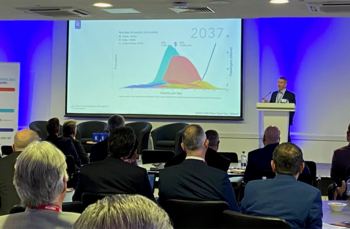
Capitalising on change
Despite still experiencing the effects of the pandemic, Rolls-Royce’s cutbacks have helped the company reach a cost base that is competitive, said Simon Carlisle, Strategy Director at Rolls-Royce. Changes made during the crisis to enhance efficiency and flexibility are also helping the company respond to opportunities much more quickly.
Simon said he believed SAF will play a big part in achieving decarbonisation ambitions; however he was more uncertain about the prospects for hydrogen, primarily due to the infrastructural challenges.
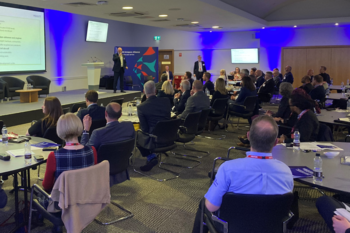
Pressure to meet sustainability challenges
Losses incurred by airlines during the pandemic mean timescales for the adoption of new technologies could be stretched, according to Hugh Clayton, Meggitt’s Director of Engineering and Strategy. However, digitisation is on the rise and pressure is mounting to innovate in order to meet environmental sustainability challenges. Airline passengers in emerging markets such as Nigeria and India are now adding their voices to the environmental concerns. Hugh also expressed confidence in SAF, speculating that it could account for half of decarbonisation by 2050. He also concurred that hydrogen solutions could be tricky.
Embracing environmental responsibility
Jean-Marie Carvalho, Vice-President, Actuations Systems at Collins Aerospace stressed the environmental responsibility the aerospace industry has to future generations and how the company is making incremental improvements to conventional technologies to make them more efficient and sustainable.
Addressing the trend of recent decades to globalise aerospace supply chains, Jean-Marie also emphasised the importance of investing in technical skills and capabilities in the UK. Although it is challenging to compete with low-cost countries, companies can vertically integrate solutions and reduce delivery times to give them an advantage.
The industry is evolving at every level
Annette Rothwell, Chair of the MAA’s Supply Chain Performance Group, has been running peer networking sessions with aerospace SMEs across the Midlands region over the last few months and shared insights into the challenges companies have been reporting, such as technical manufacturing issues, sourcing skilled people and market access.
Annette was joined by three panellists: Anne Ford of PGM Reball, Steve Boyd of G&O Springs and Sam Buckton of Buckton Commercial Solutions, who shared great examples of how they are embracing diversification and innovation to solve issues and create competitive advantage, for example through digitisation and automation. An inspiring story also emerged about an SME that had set up its own training academy to help retain skilled employees.
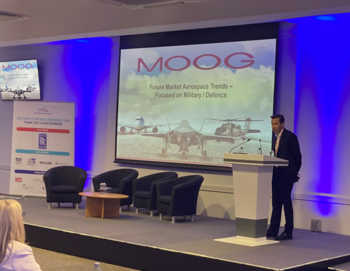
Evolution of defence aerospace
Charlie Burrell, Director of Military Programmes at Moog Aircraft Group explored how the defence aerospace business environment and technologies are evolving, for example in new flight control systems and possible electric propulsion. He then shared details of potential Moog involvement in the military aircraft programmes of the future in both the UK and US markets, emphasising the long-term nature of these business opportunities, and, implicitly, the business patience required to support and benefit from them.
Rapid rise of Advanced Air Mobility
The Advanced Air Mobility (AAM) industry - which includes flying taxis, personal air vehicles and alternatively powered sub-regional aircraft - is creating new opportunities for aerospace companies and the market could grow to $510bn by 2040, according to MAA Technology Manager and Managing Director of Achieving the Difference, Clive Lewis. Clive is currently supporting Midlands SMEs to succeed in this exciting market through the Aerospace UP programme.
Opportunities in ‘new space’
The UK Space Strategy and rapid growth of the industry are creating opportunities for aerospace companies in the Midlands, encouraged by the UK Space Agency’s regional clustering policy. MAA Technology Manager, Andy Leather, highlighted the importance of the country developing both its upstream space industry (manufacturing for flight and ground requirements) and supporting downstream space (space data) as, currently, 90% of space data comes from sources abroad which could cause economic issues if disrupted.
In Andy’s view, ‘new space’ - a more commercial sector with less state-driven activity - is creating real opportunities for aerospace companies as they are well placed to handle sophisticated regulations and they could benefit from higher levels of R&D spend.
Although many unknowns remain in the industry – leading to varied predictions as to the growth trajectory for the aerospace as it recovers and the flightpath toward ‘jet zero’ that will prove most successful – the MAA 2022 conference was a prime opportunity for aerospace companies, or those looking to enter the sector, to harness insights from leading experts so they can develop the strategies they feel will give them a competitive advantage.






